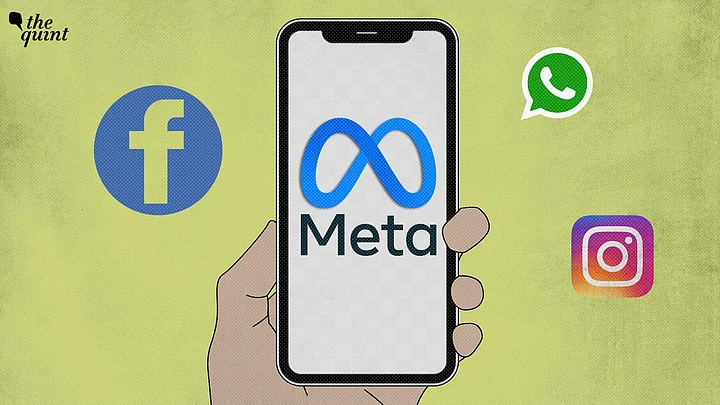Once again, we are in the world of Social Media-India theatre . On one side, is an almighty platform company with a business model entirely dependent on the behavior collection of its users by mass surveillance and big data exploitation. On the other side, is an independent non-profit news and opinion website.
Once again, we as users, are asked to watch this drama unfold while the fat cats scramble to maintain their positions, and journalists are asked to provide evidence of their analyses.
This is nobody's first rodeo, especially not ours. All these charades end the same way, by transferring power away from the users, and getting divvied up between the states and platforms.
Indian Media Outlet’s Mega Exposé
Here are the facts that led to the current scenario.
On 6 October, The Wire reported the takedown of several Instagram stories by satirical anonymous account 'Superhumans of Cringetopia' for violation of platform community guidelines.These stories were apparently removed for portraying nudity. This was puzzling as everyone featuring in the video seemed covered and no sexual connotation was discernible.
This was followed by another exclusive story by the said organisation, asserting that the posts were removed not by an algorithmic glitch as previously asserted but because of a report by Instagram user @amitmalviya, belonging to Amit Malviya—President of the ruling party Bharatiya Janata Party's (BJP) IT Cell. The Wire based this on information obtained through an internal source.
This launched a back and forth volley of denials and allegations of fraud by Meta's policy communications director Andy Stone and Chief Information Security Officer (CISO) Guy Rosen.
Responding to these, the news outlet has provided a point-by-point rebuttal of these assertions. However, facts are still emerging and evolving.
The point, naturally, is not whether Xcheck-privileged users could somehow "automatically" censor others' speech. Nor is it whether Meta surveils outgoing email from within its organisation for contact with particular journalists. The details are irrelevant and Meta's eagerness to deny them confirms their triviality.
Free Rein to Content Platforms Is a Pressing Issue
The real issue is the immense moment-to-moment power wielded by the platform companies. Their decisions about whom to favour with internal procedural advantages like their decisions about what material to refrain from carrying or to remove after publication — affect the allocation of political power.
Yet, they are exempt from legal liability for "user-generated content" on the supposed ground that they do not make editorial decisions at all. This absurd contradiction so flagrantly defies logic, so patently depends on falsehood that continued pretense is no longer possible. But the platform companies have one last strategy to avoid accountability for their "content".
They become censorship service providers: helping ruling parties and government officials tailor public opinion by both addition and subtraction. In the US, for example, this sees widespread support from the civil society which concentrates too much on Section 230 and too little on nuanced reform.
Data Manipulation Empowers Big Tech
Trading for political influence, the editorial decisions one takes, automatically become legally immune, no questions asked. And these companies seem to be hitting the nail on its head.
As always, when governments and the platforms are negotiating their relationship, it is the peoples' rights they are compromising. The game they play has its own arbitrary conventions: the stakes are very high, the smallest details can matter. But we are kept on the sidelines, and we are, thus, guaranteed to be losers in the end.
In the current phase of the dance, governments are taking advantage of public distrust of the platforms to demand more power to use the platforms as censors.
They are seeking to give themselves quick takedown powers, identity-detection authority and other instruments for using the ultra-powerful platforms as tools of state power. India has the reputation of leading the world in these practices through the IT Act.
Even highly educated ministers in Ministry of Electronics and Information Technology (MeitY) are not above this desire for complete control even at the expense of driving business away from India.They are enabling themselves to impose massive fines, threatening to imprison individual executives, backing their demands with all sovereign power. They will get what they want.
The platform companies will get the social and legal support they need to keep growing the power of which government and governing parties take advantage. What people want is to receive benefits of digital transformation, with the power to govern themselves with respect to their rights under the rule of law increased, not traded away for ‘convenience’.
Legal Accountability Is the Key in a Democracy
What they get is captured narrative by political players and their cheerleaders, surveillance, dystopia and political theater. Electronic democracy, if we want to have it, is not this kind of ‘democracy’ and not this kind of electronics.
We need a political program for digital democracy that empowers people. Their interests will not be represented by government in the present configuration, no matter what government.
Building digital services that help everyone communicate, learn, share, do business and grow is a matter of primary government concern. Policy for digital services should begin from users' rights. Users gain nothing from the platforms' immunity. Users' rights to free expression, to dignity for themselves and their loved ones in the public space, to equal treatment in interaction with public entities---none of these rights is furthered by the fiction of the platform-as-conduit.
Let us begin by making the platforms legally responsible, like any other publisher, for what they publish. And if this destroys social media in the making, so be it. One small step at a time...
(Mishi Choudhary is Managing Partner at Mishi Choudhary & Associates LLP, and Legal Director at the Software Freedom Law Center. Eben Moglen is Professor of Law and Legal history at Columbia University, and Director-Counsel and Chairman at the Software Freedom Law Center.)
(At The Quint, we question everything. Play an active role in shaping our journalism by becoming a member today.)
